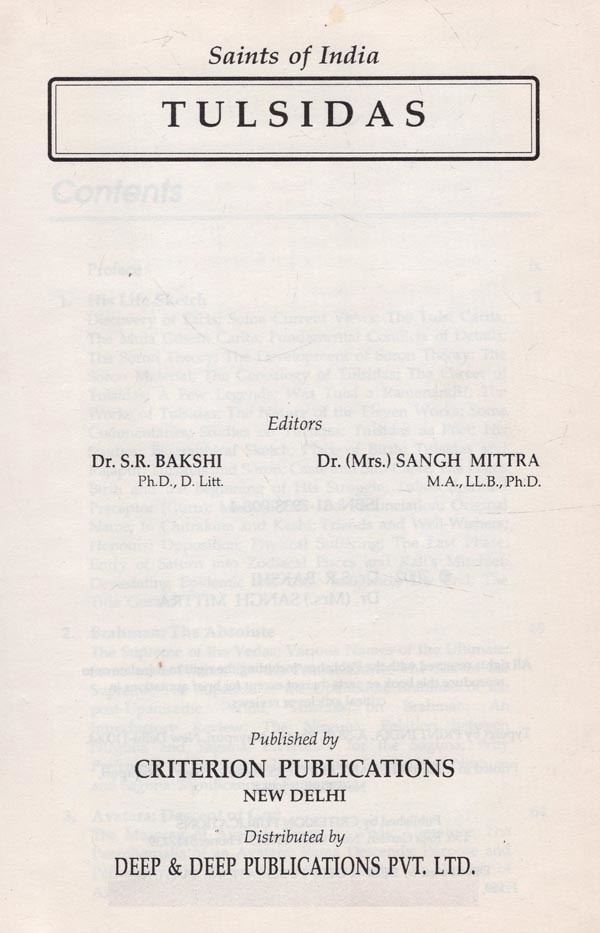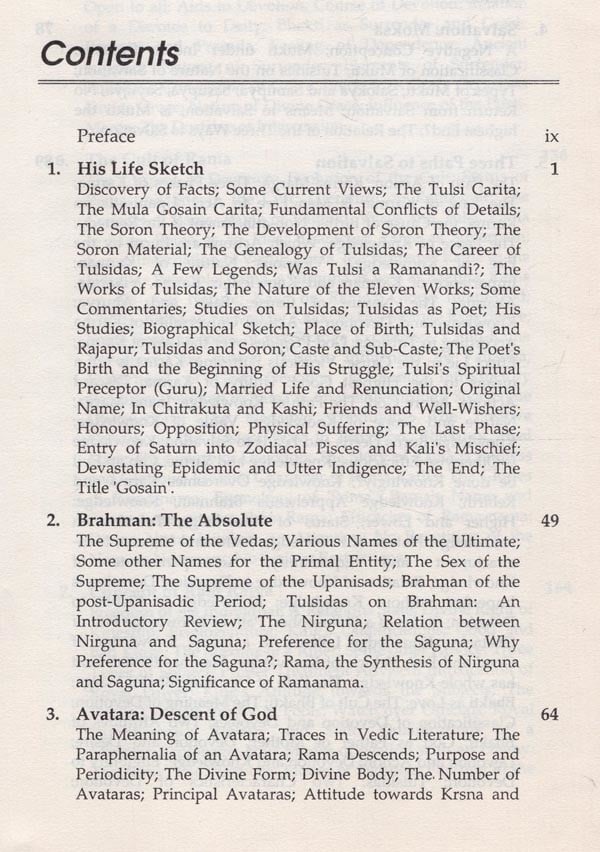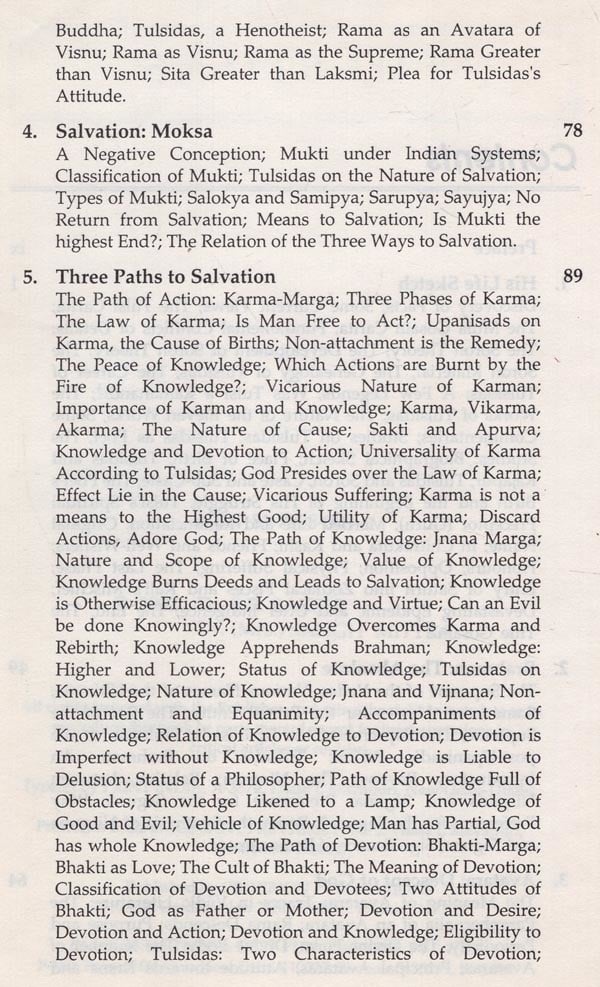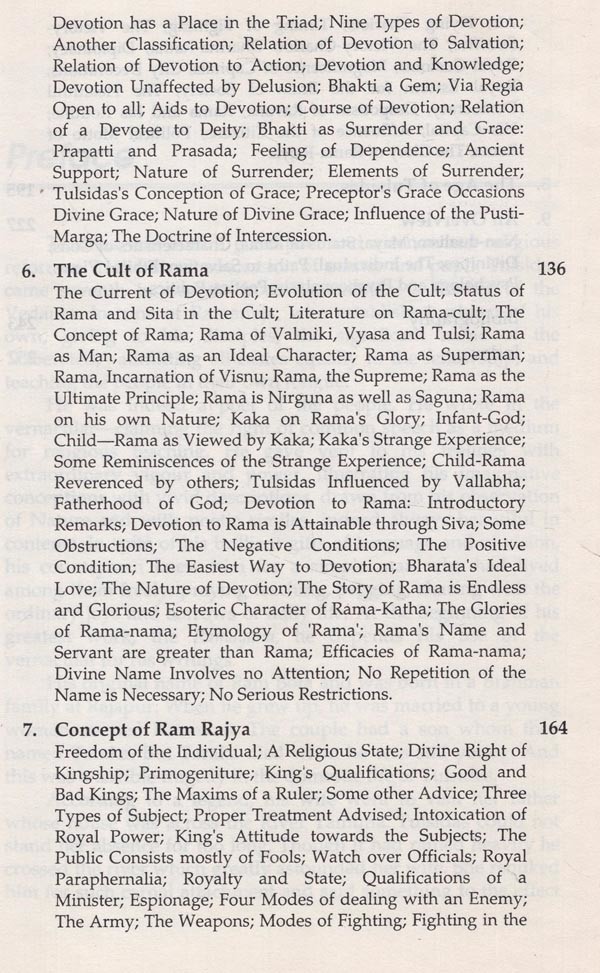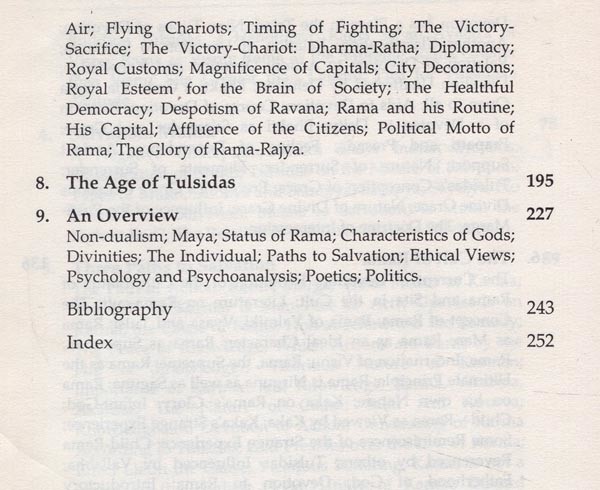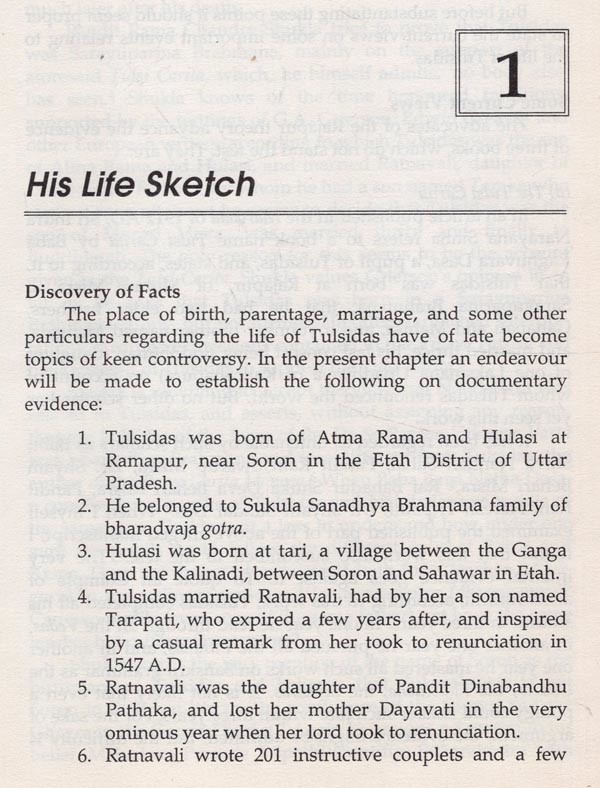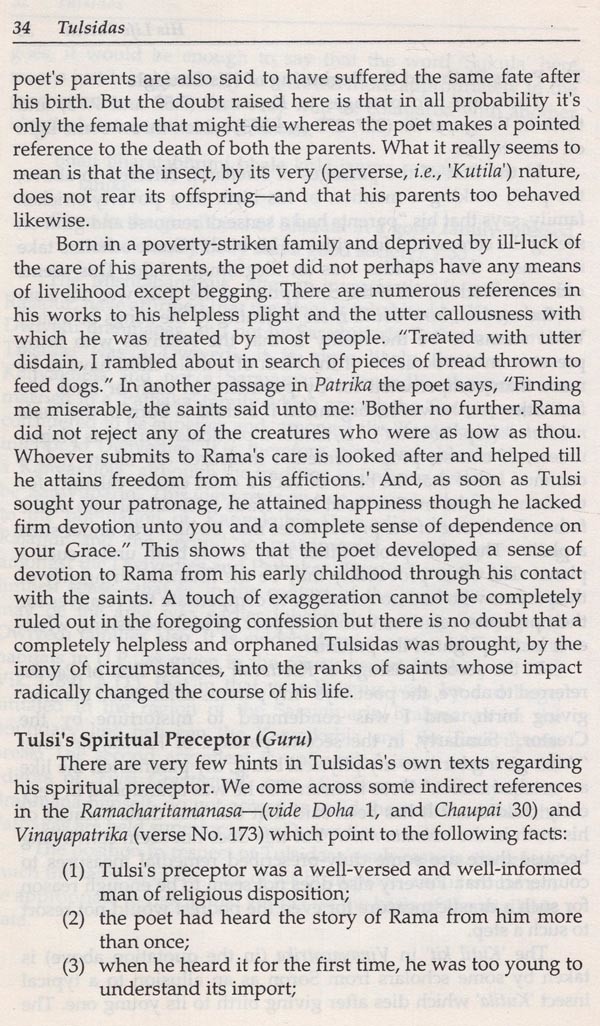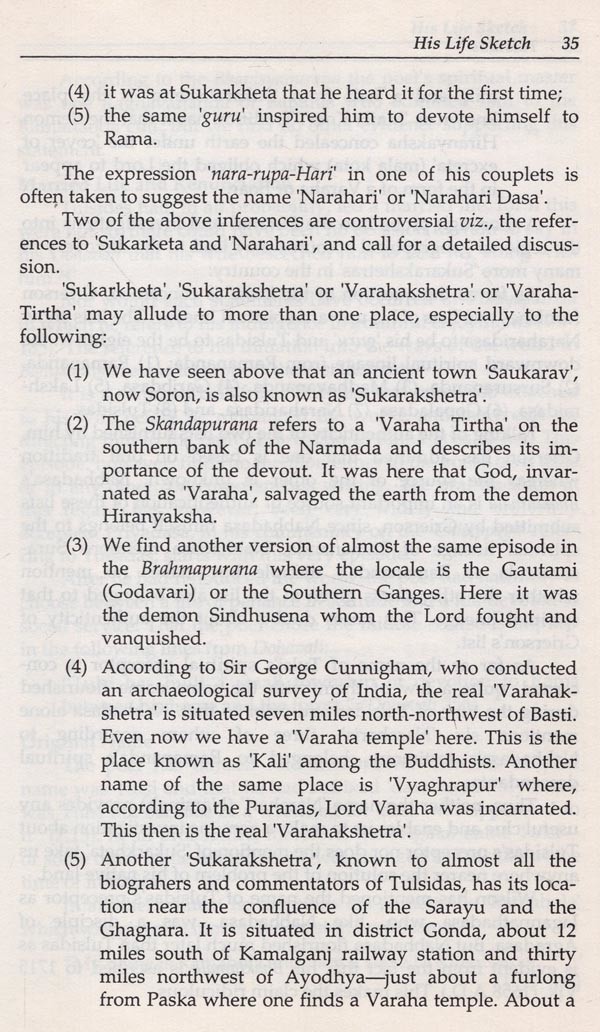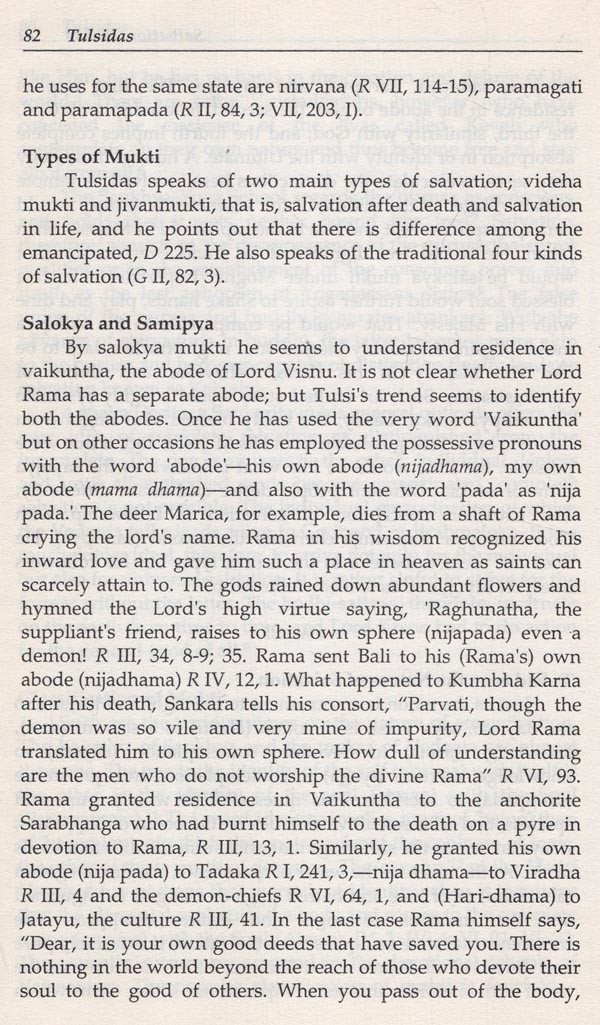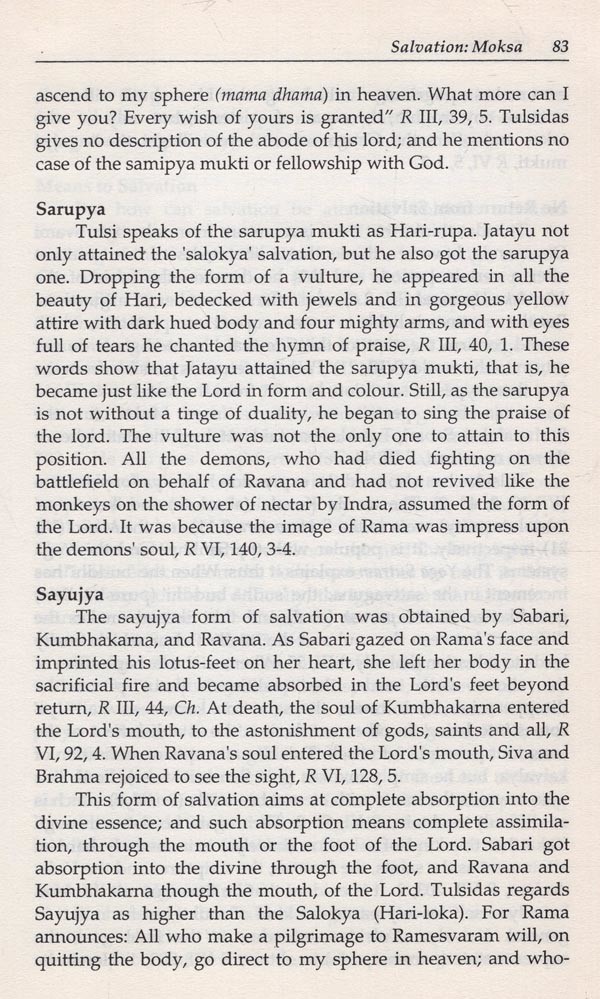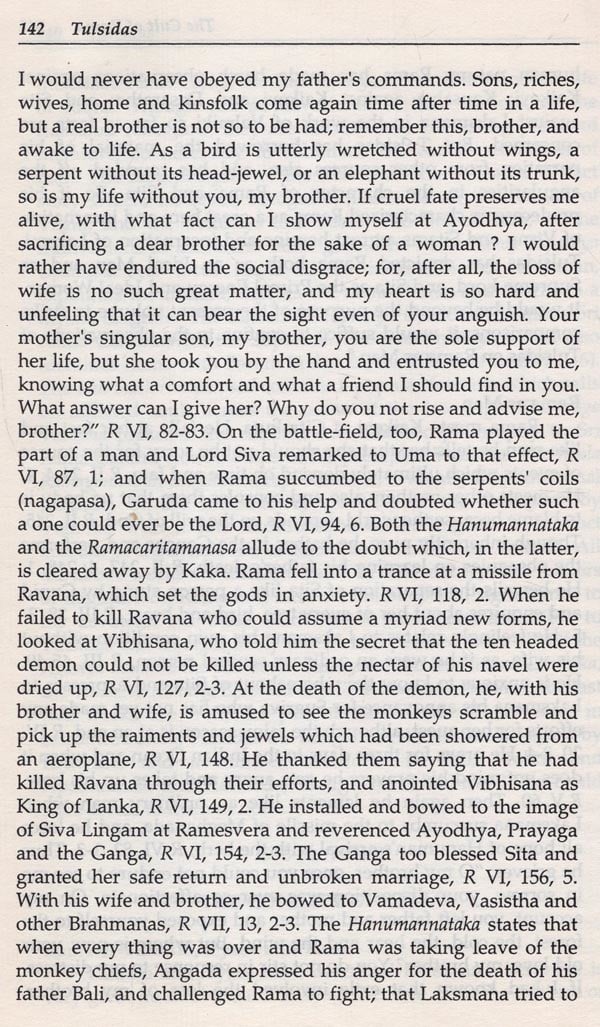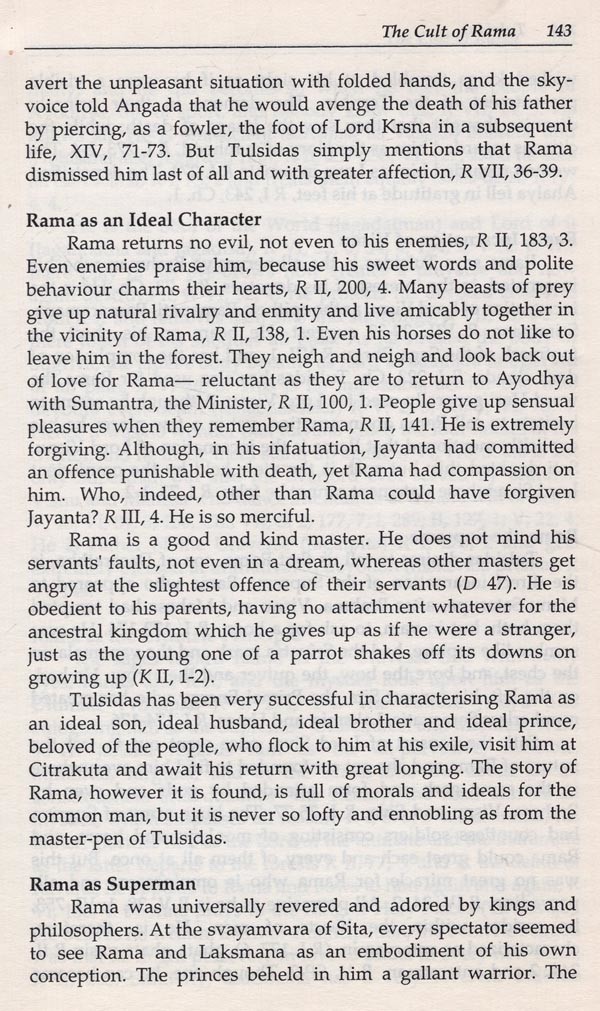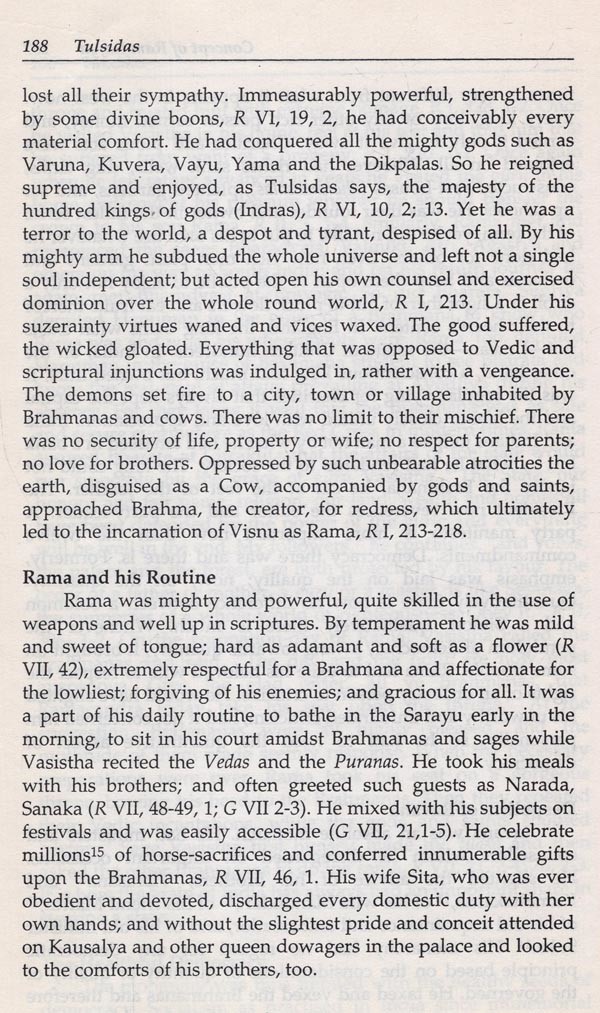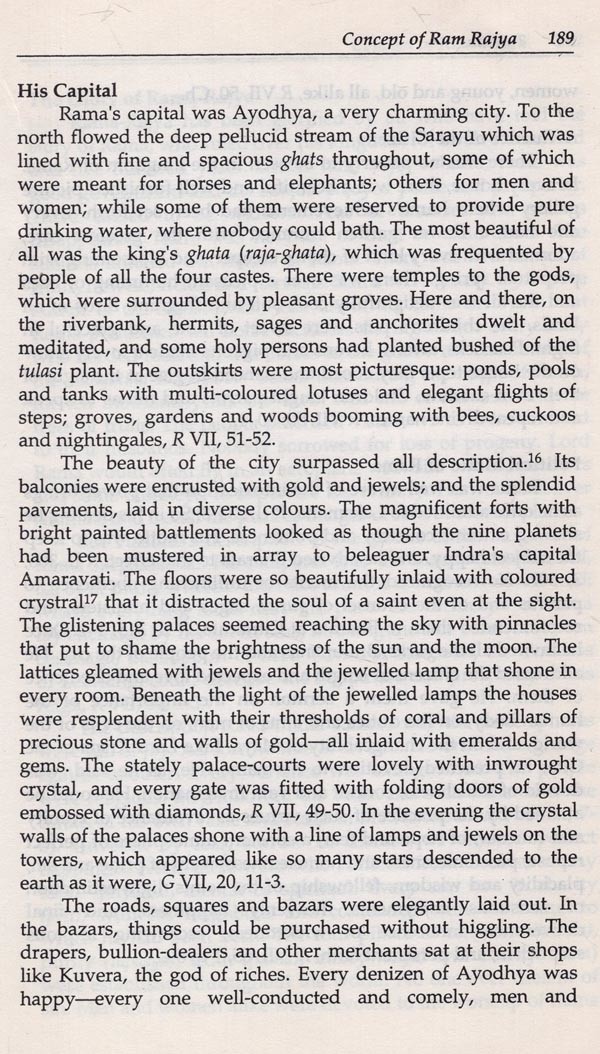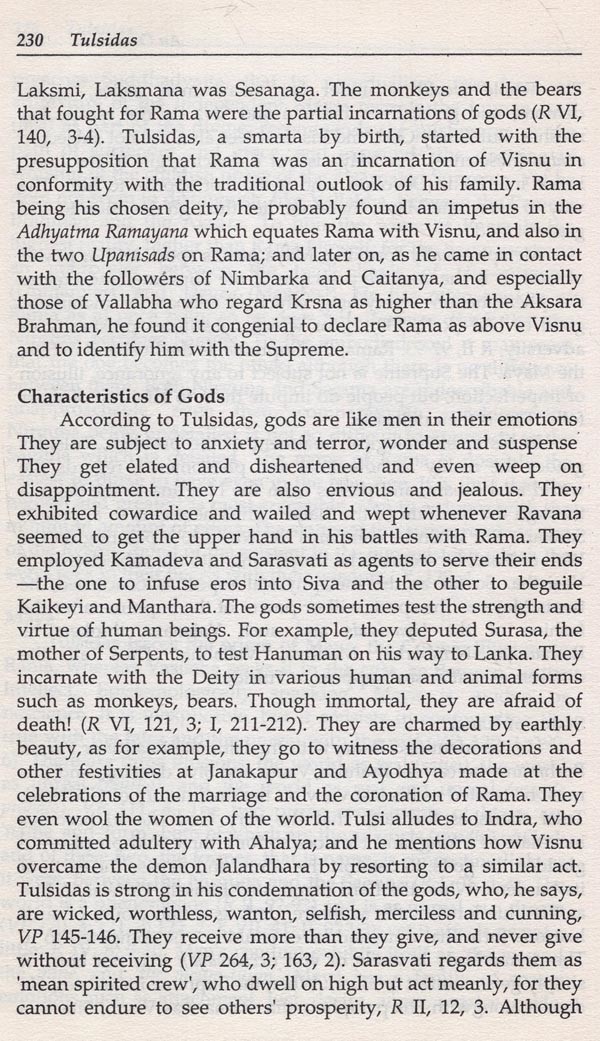
Tulsidas- Encyclopaedia of Saints of India (Part-3)
Book Specification
| Item Code: | UBC426 |
| Author: | S. R. Bakshi & Sangh Mittra |
| Publisher: | Criterion Publications, Delhi |
| Language: | English |
| Edition: | 2002 |
| ISBN: | 8179380084 |
| Pages: | 270 |
| Cover: | HARDCOVER |
| Other Details | 9.00 X 6.00 inch |
| Weight | 450 gm |
Book Description
The theme of this work has deep bearing on the religious philosophy of Saint Tulsidas whose emergence on the social scene of our subcontinent brought about a change which benefited Hinduism and other religions. The authorship of the Ramayana is his greatest academic contribution which has made several generations to show spontaneous love and respect for him. Besides he showed us the principle of moksha, three paths of salvation, descent of God and several other principles for the welfare of humanity.
This work would be useful for teachers, researchers, students and all those who are interested in the religious philosophy of Saint Tulsidas in our sub-continent and abroad.
Contents include: His Life Sketch; Brahman: The Absolute; Avatara: Descent of God; Salvation: Moksa; Three Paths to Salvation; The Cult of Rama; Concept of Ram Rajya; The Age of Tulsidas; An Overview.
Dr. S.R. Bakshi, Ph.D., D.Litt. is an eminent. scholar of Modern Indian History and is the author of several works on Indian nationalism and freedom movement. His recent works include 'Encyclopaedic History of Indian Culture and Religion' (in 5 Vols.), The Great Marathas' (in 5 Vols.), The Great Rajputs' (in 6 Vols.), 'B.R. Ambedkar: His Political and Social Ideology' (in 2 Vols.), 'Encyclopaedic History of The Sikhs and Sikhism' (in 6 Vols.), The Great Moghuls' (in 8 Vols.), and Development of Women, Children and Weaker Sections' (in 5 Vols.). Dr. Bakshi is member of several academic institutions having deep bearing on historical research.
Dr. Sangh Mittra, LL.B. Ph.D. from Lucknow University, is Dy. Director (Research) in Indian Council of Historical Research. Her Ph.D. thesis on 'Iconographic Study of Minor Brahmanical Deities in Northern India' is published along with more than 20 Research Papers in reputed historical journals. She is Life Member of several academic institutions and a reputed examiner of Ph.D. thesis of Universities of North India. Besides she has actively participated in numerous national and international Seminars.
Tulsidas was both a great poet and a renowned religious reformer. In the direct succession of master and pupil, Tulsidas came seventh in descent from Ramananda, a teacher of the Vedanta doctrine of Ramanuja, who established schism of his own, giving to his disciples, the significant name of the "Liberated," admitting all castes equally to the fellowship, and teaching the people in their own tongue.
He was indeed a poet of the people. He wrote in the vernacular-claiming the right of common speech as a medium for religious teaching. He gave vent to his feelings with extraordinary vigour and power, illustrating his imaginative conceptions with vivid descriptions, drawn from his observation of Nature and with poetic similes, indeed always beautiful in contents. In spite of his brilliant gifts of language and of vision, his countrymen knew him for a simple man who had lived among them freely; praying teaching, begging, sharing with the ordinary joys and sorrows of daily life. At the beginning of his greatest work, the Ramayana, he depends his use of the vernacular for his writings.
His original name of Ram Bota and was born in a Brahman. family at Rajapur. When he grew up, he was married to a young woman, named Ratnavali. The couple had a son whom they named Taraka. But Taraka died when he was still young. And this was a terrible tragedy in the domestic life of Tulsidas.
**Contents and Sample Pages**
